
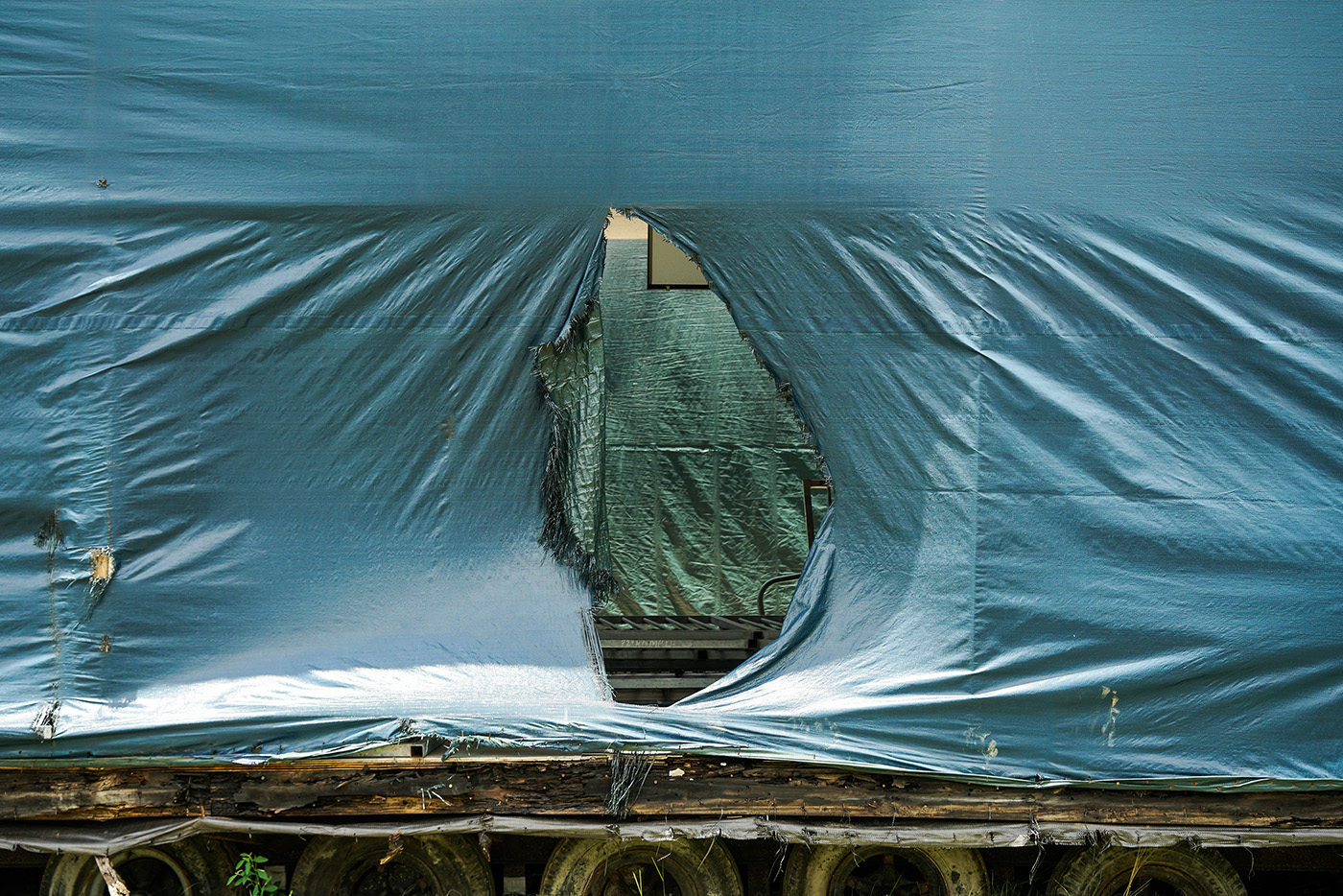
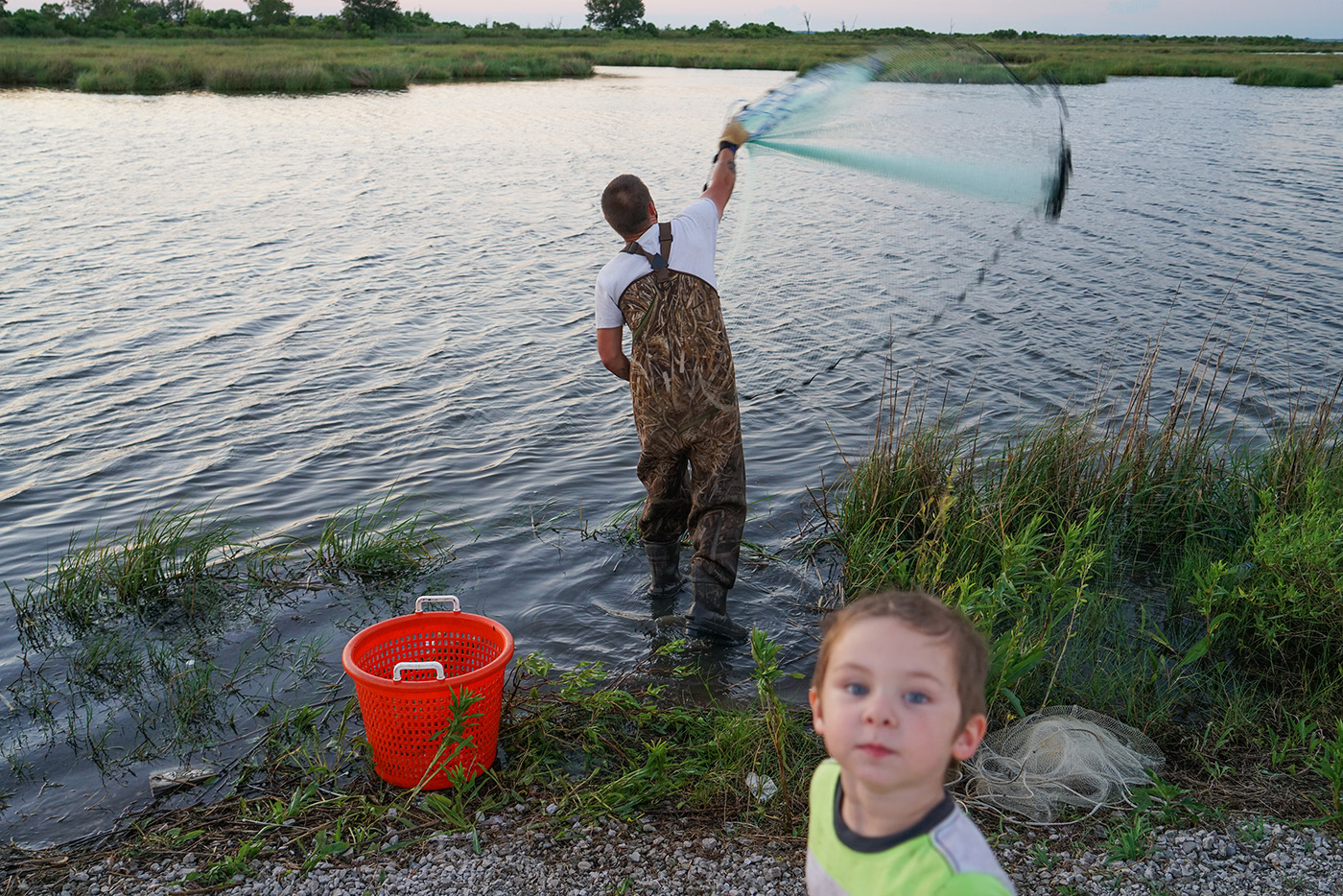
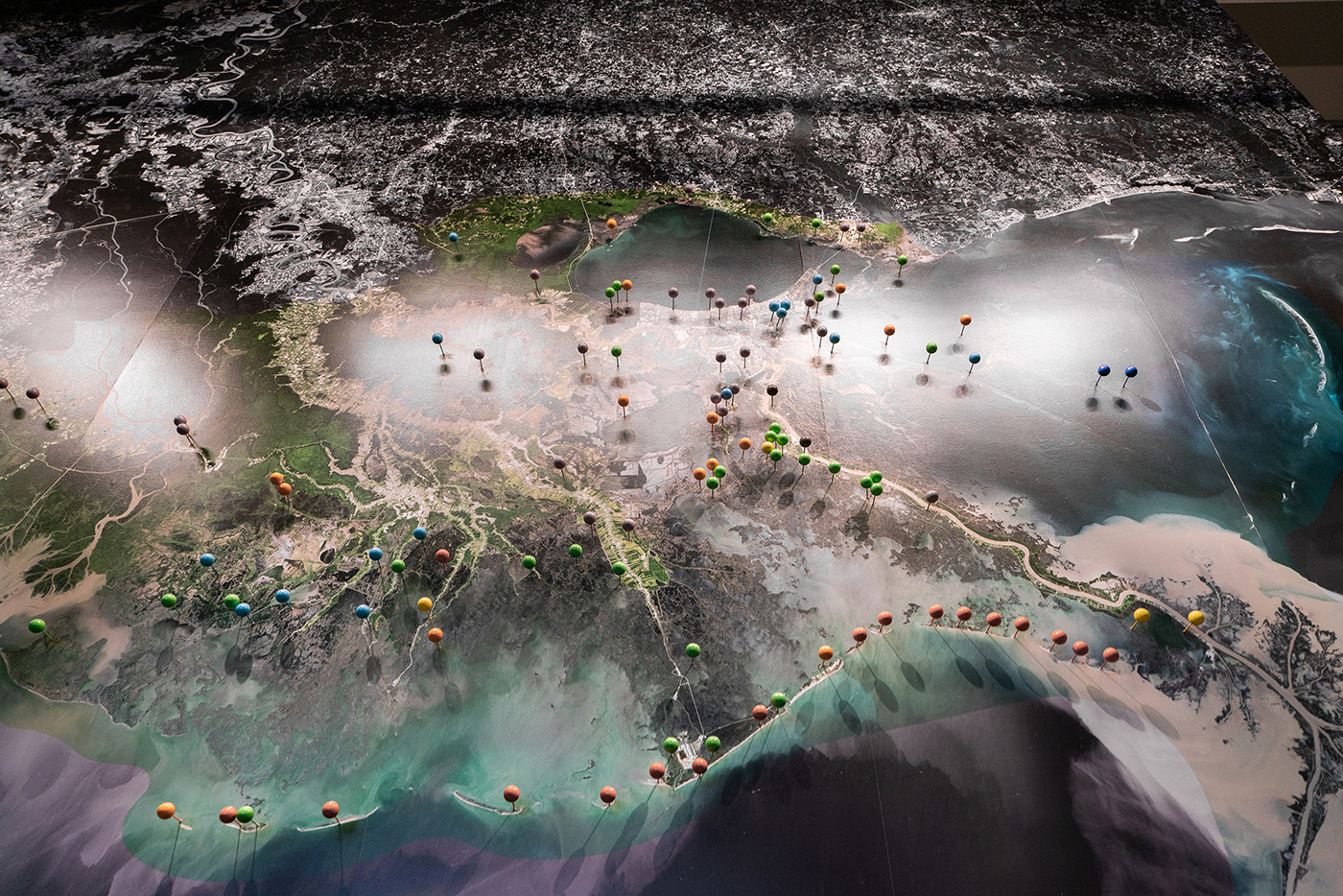
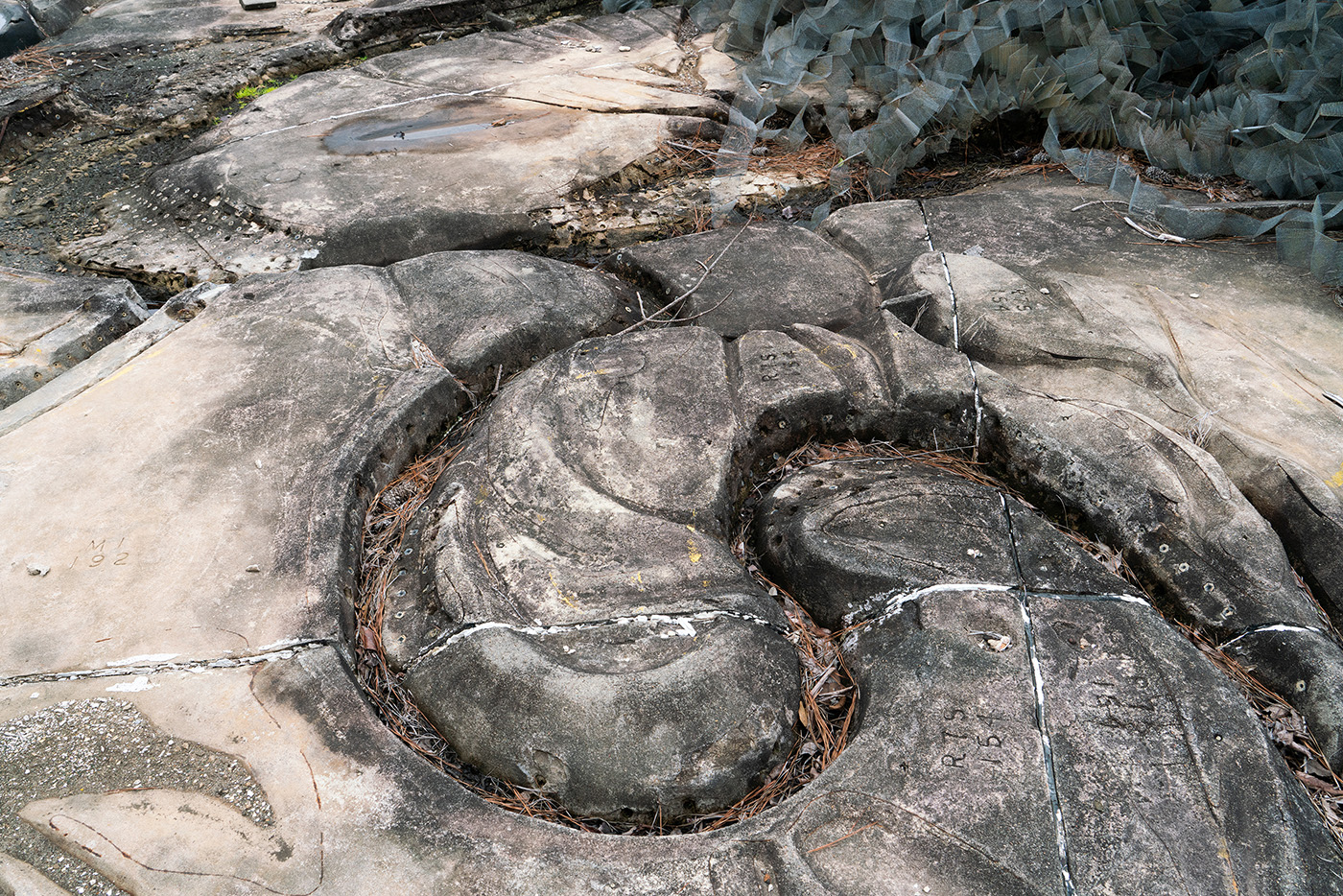
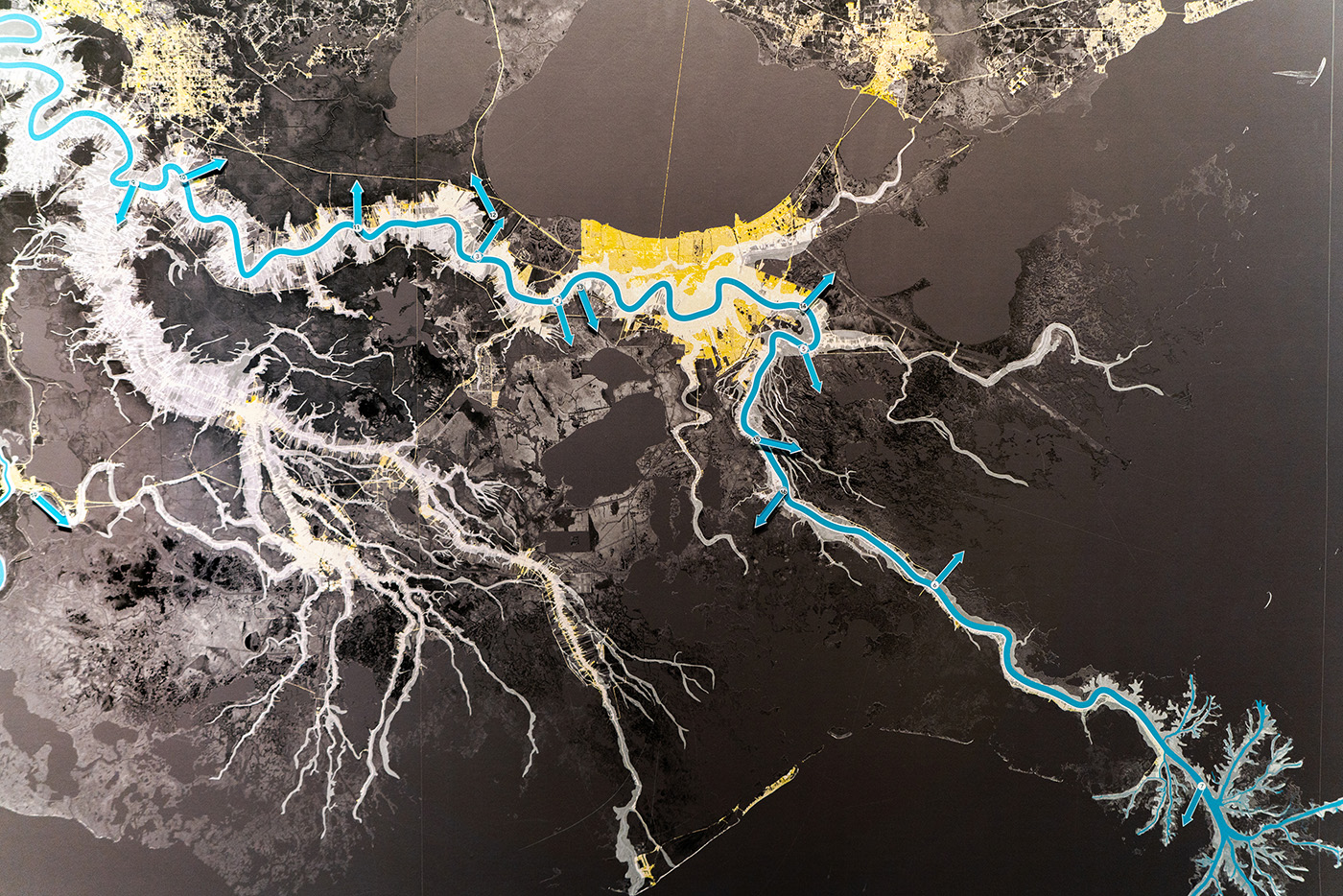
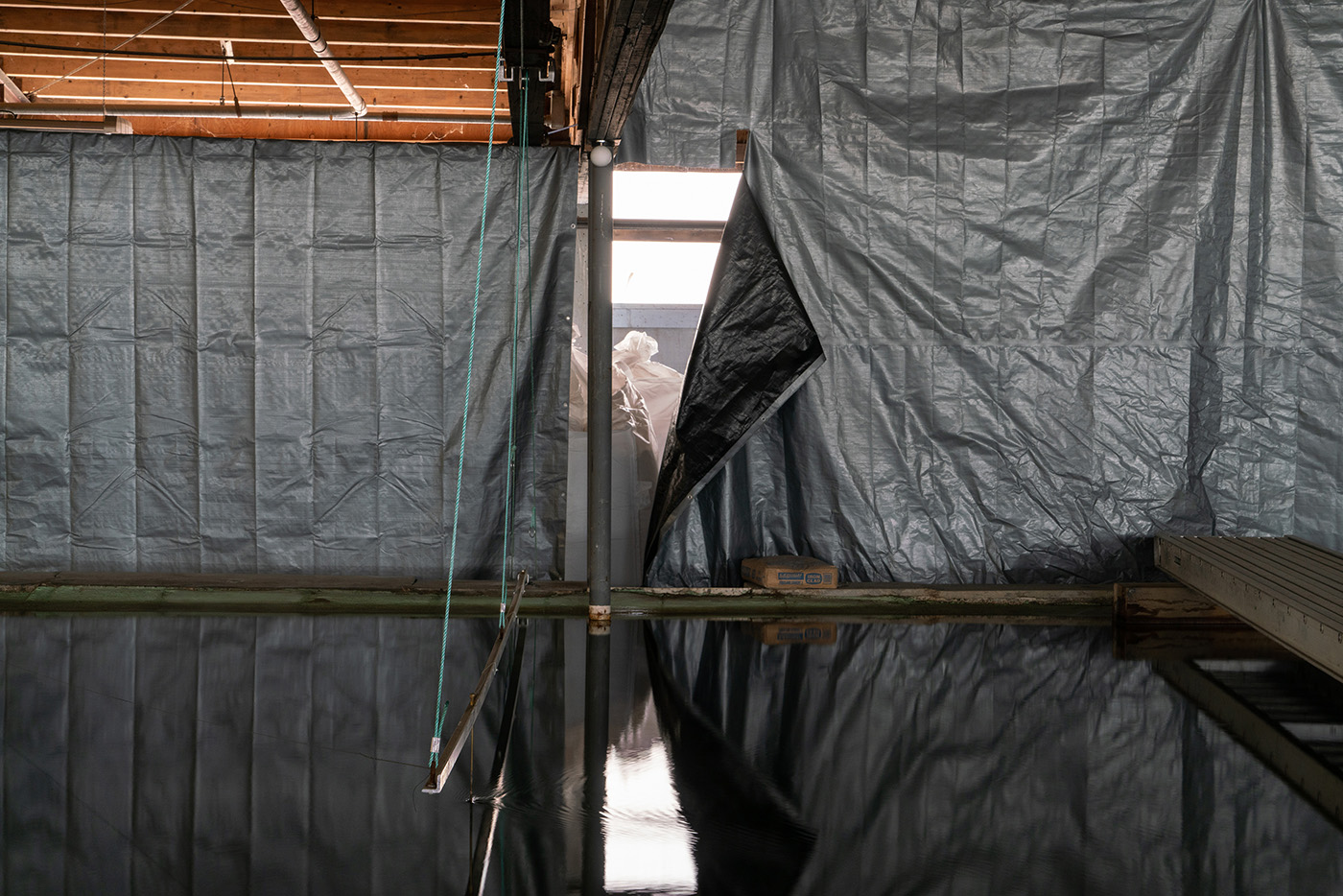
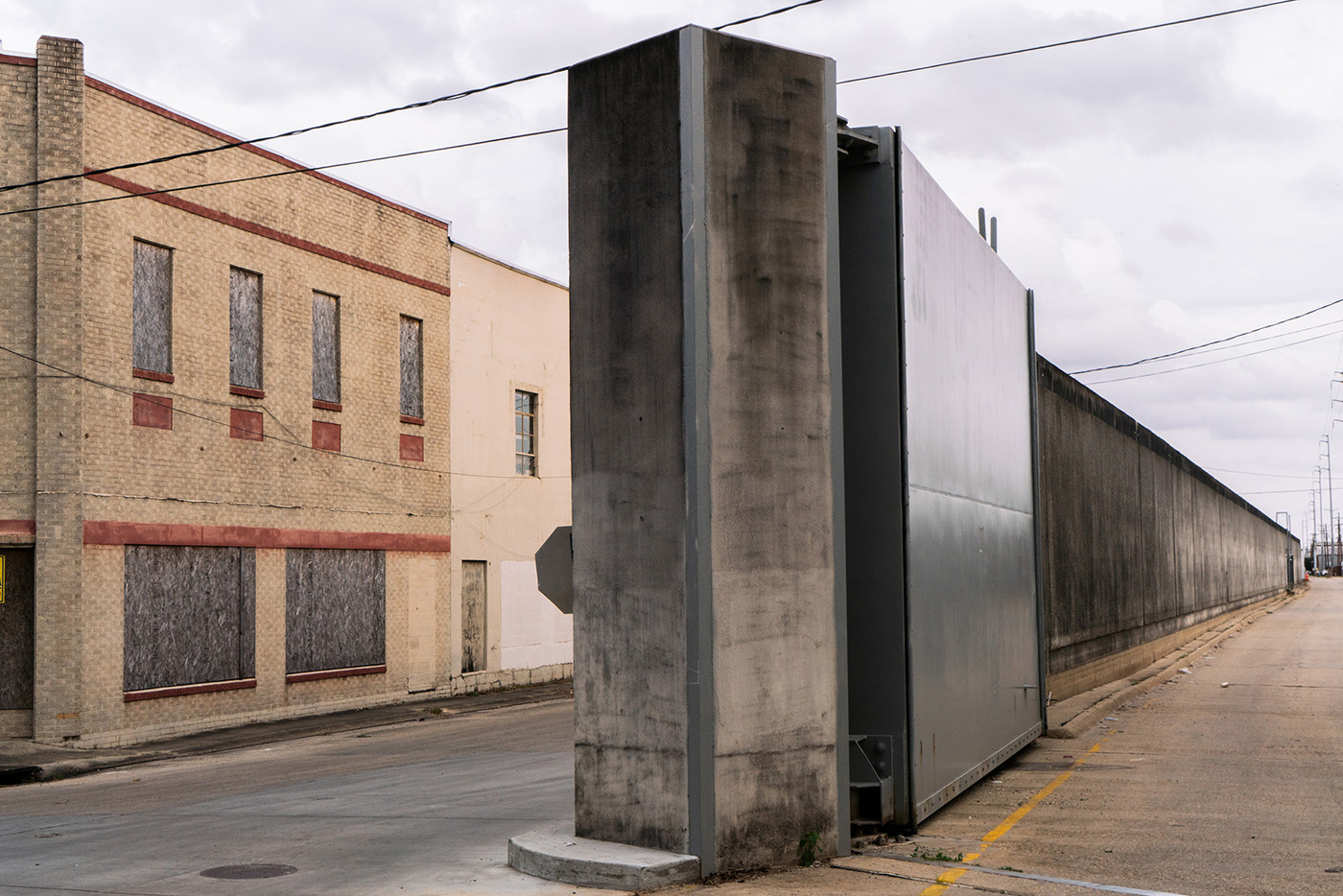
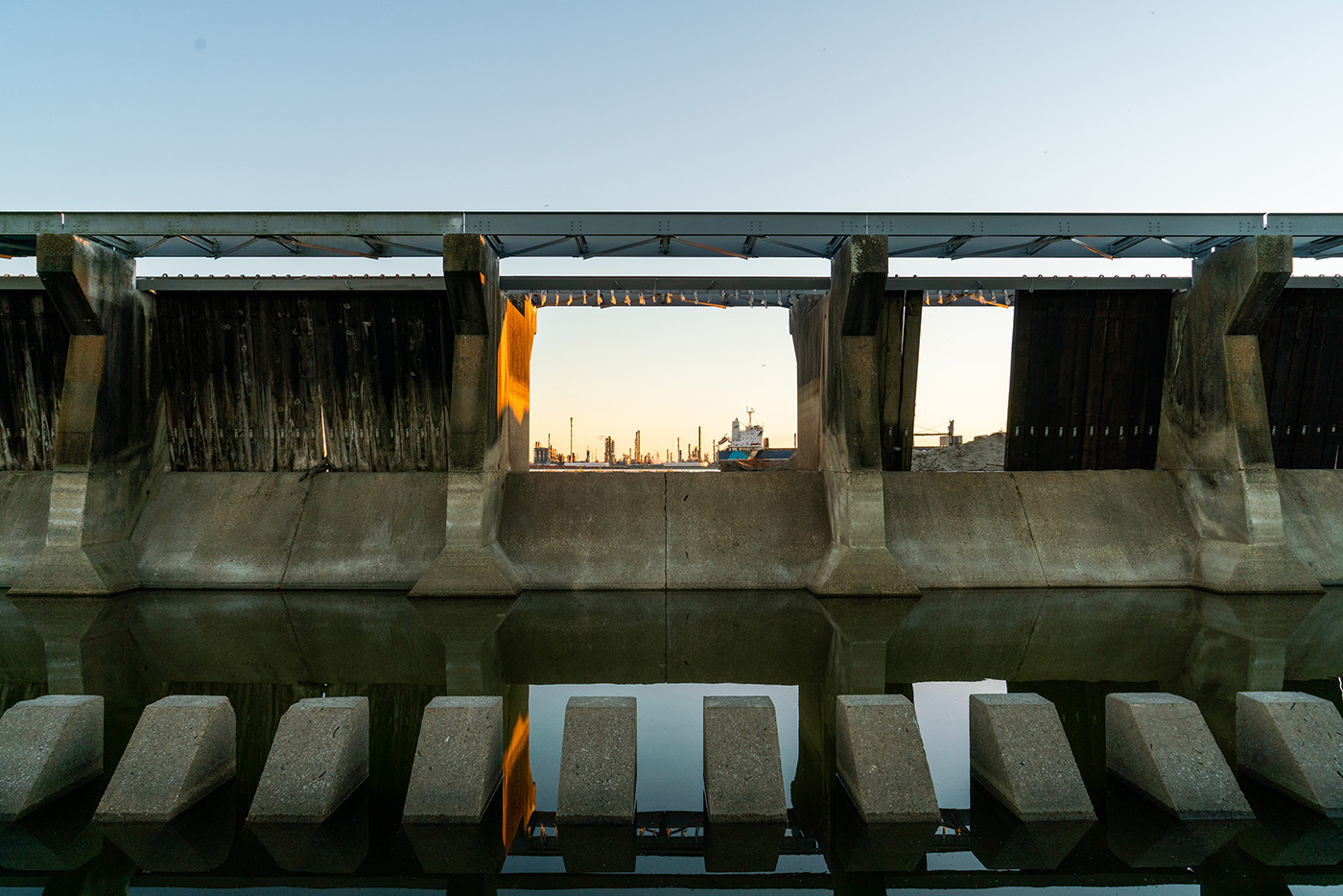
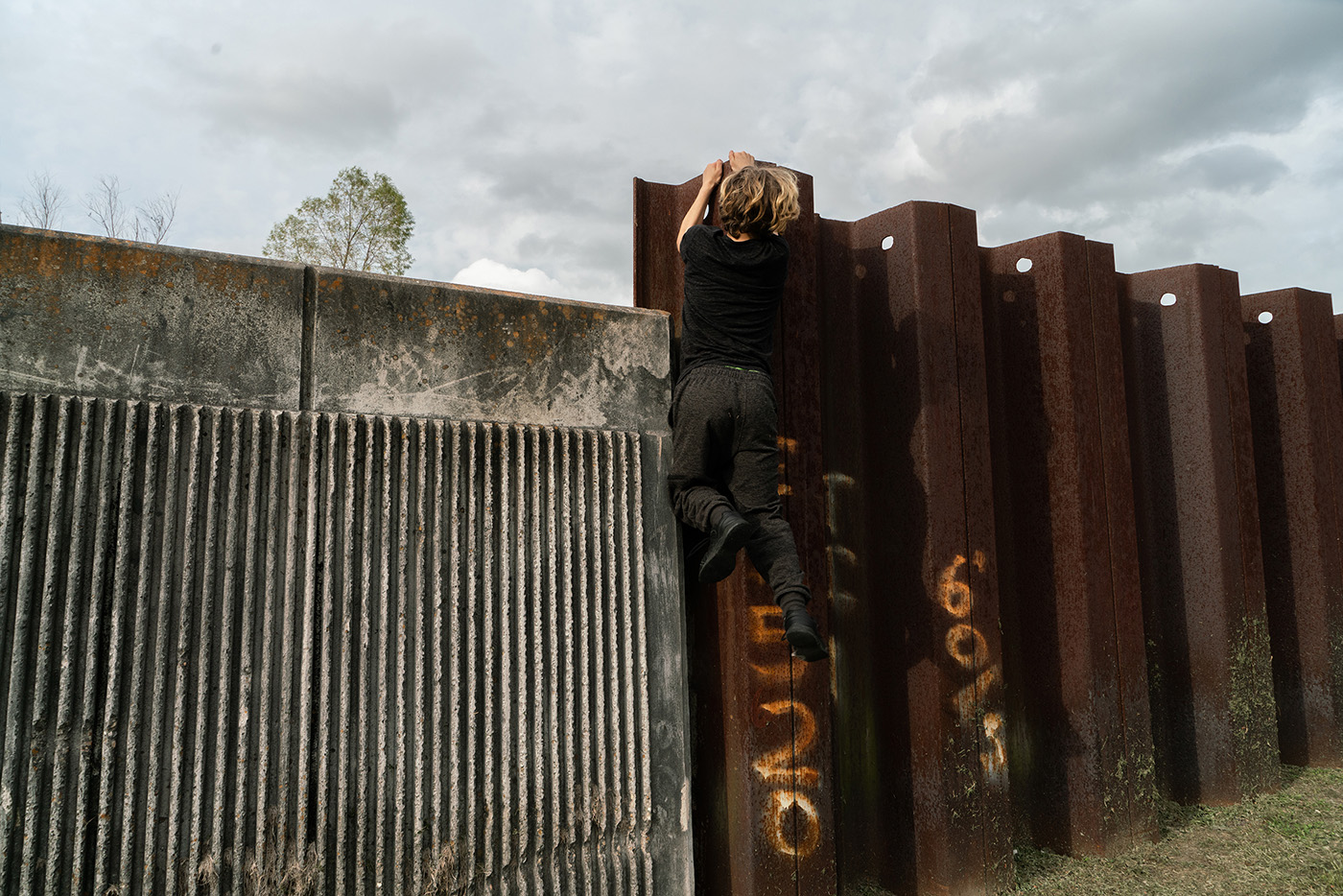
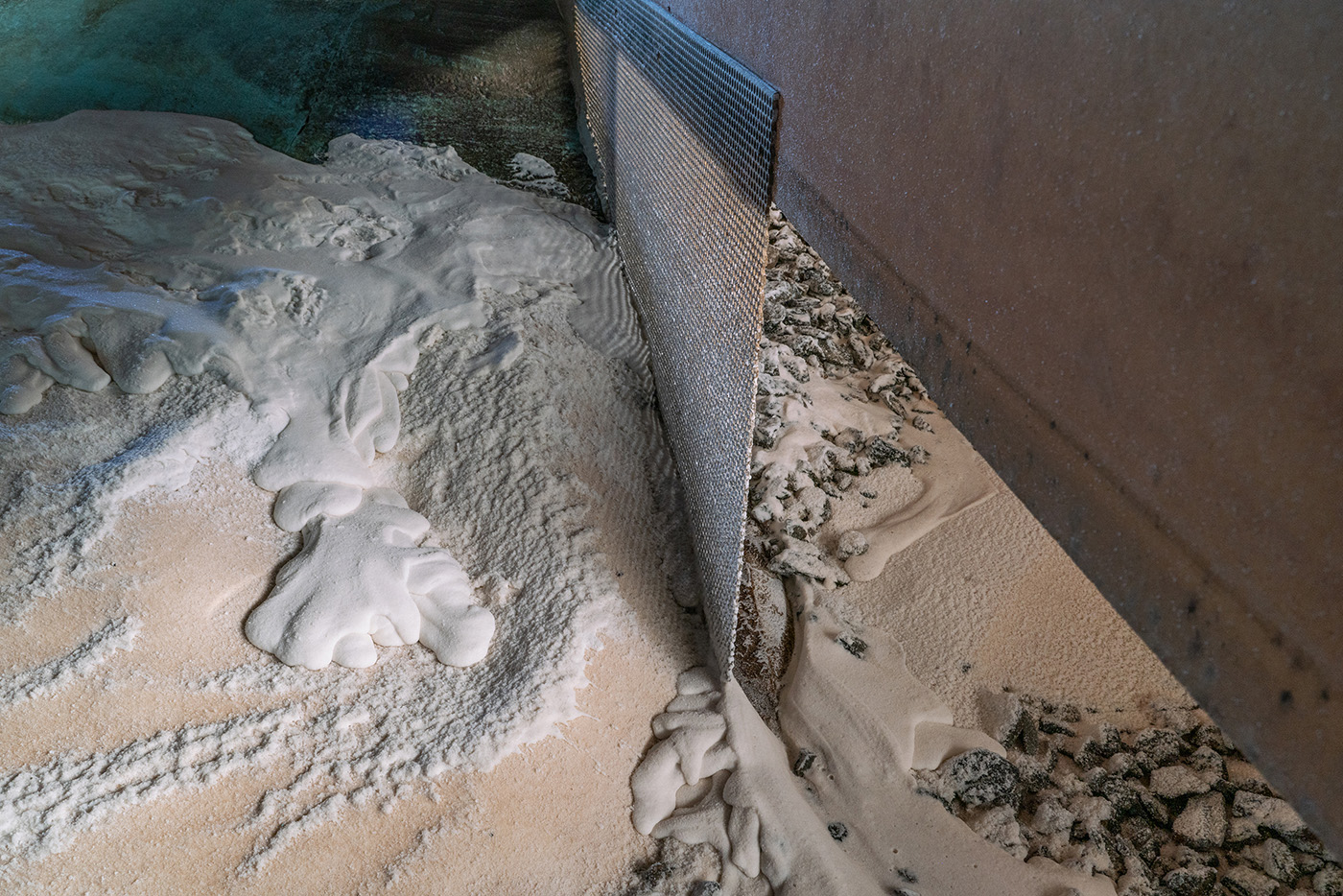
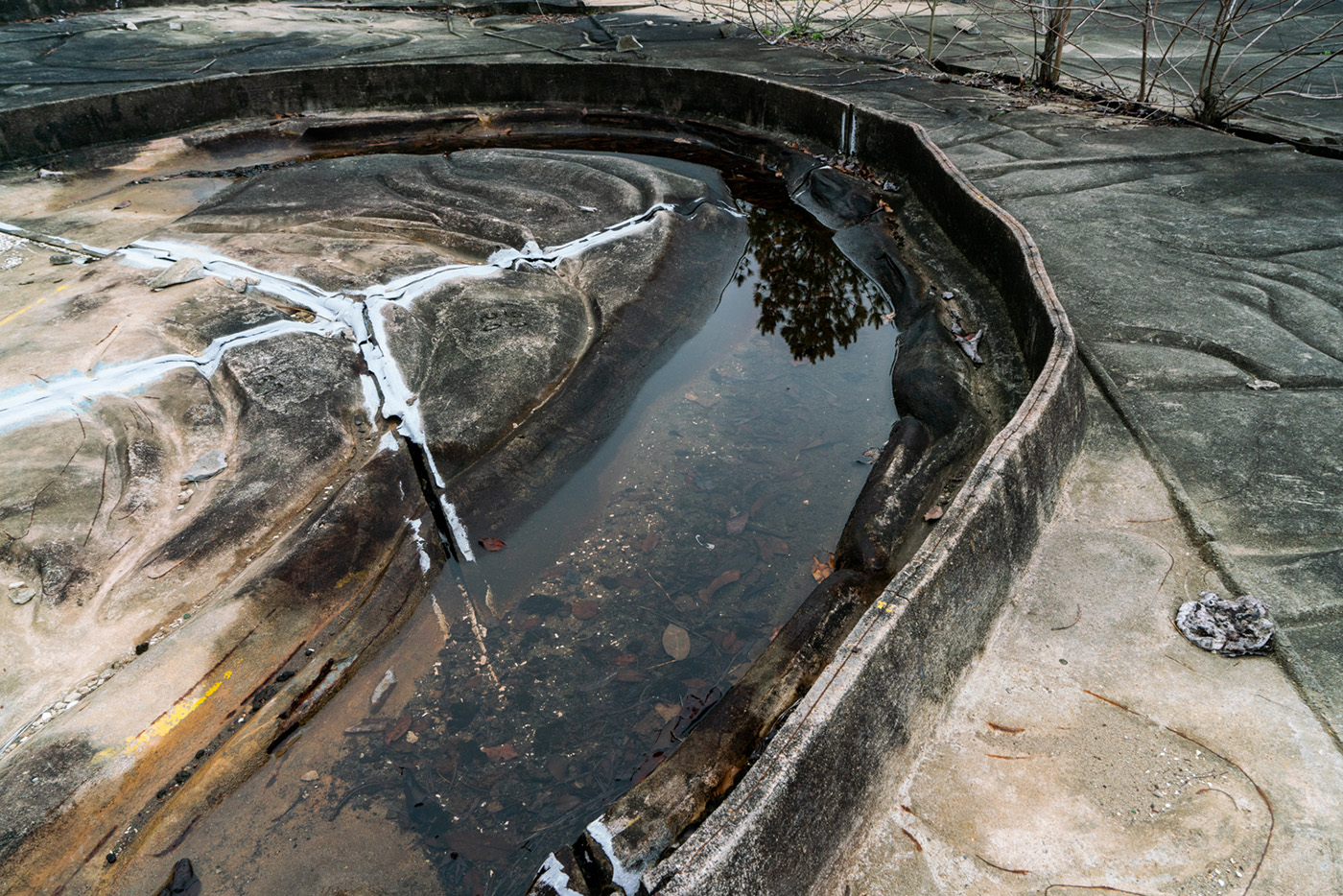
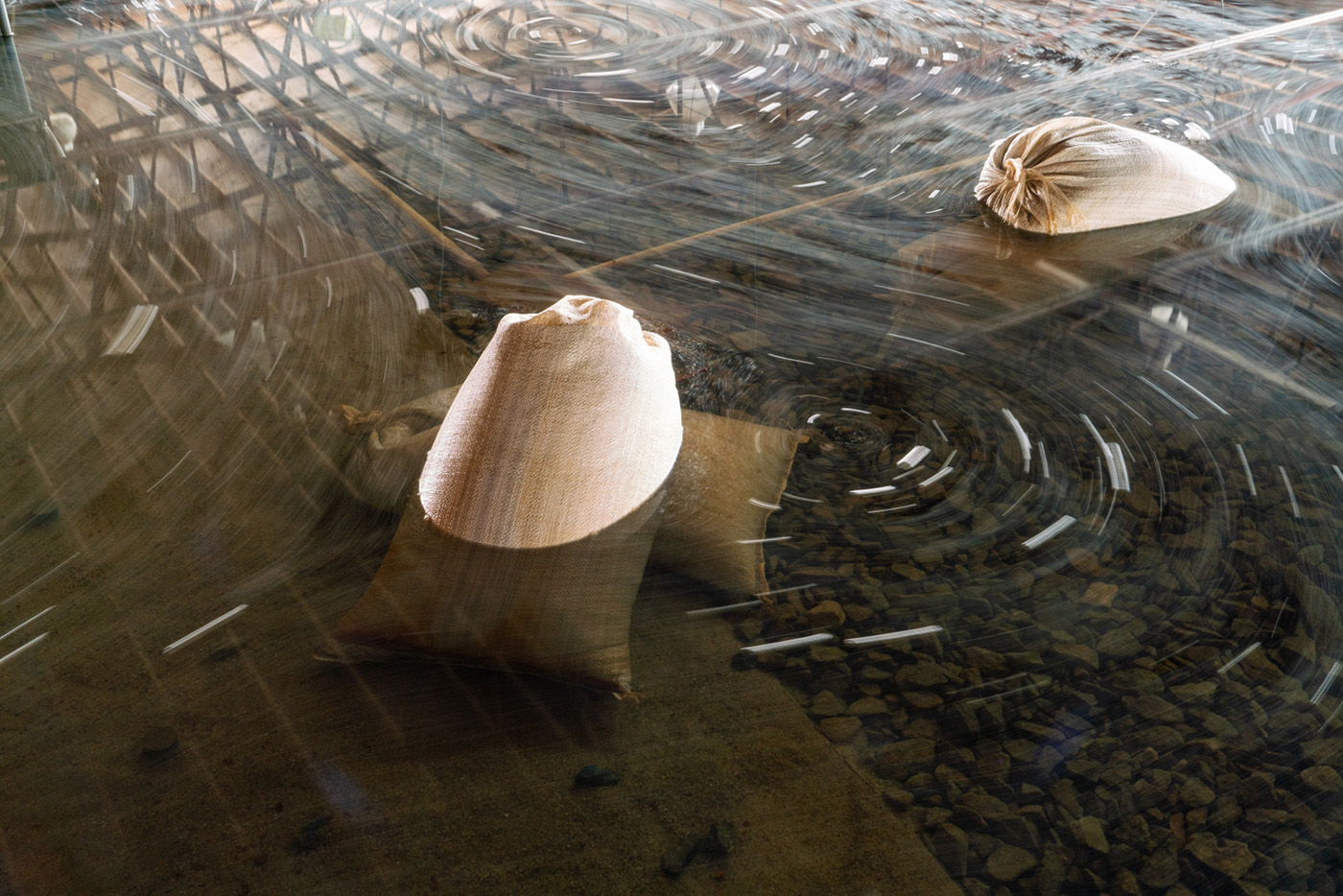

ME&EVE GRANT: Artist's Statement
Winner: Leah Dyjak
As we play god
The way landscape photography historically has been aestheticized often excludes conflict, contested histories, and social-ecological concerns. In my photographic work, I try to expose photography’s broader potential, as it can create links between the viewer and urgent social issues that connect to the collective body and the experience of climate change.
As We Play God is a visual investigation into infrastructure failure and environmental collapse in the fastest-disappearing land on earth: Southeastern Louisiana. In this photographic and field research project, I look at the poetry of material systems’ failures by finding the human errors that collide with weather events to produce economically and spiritually costly catastrophes such as levee breaches and flooding. River deltas are dynamic, building, or eroding based on the rate of sediment deposit. However, since the original colonization of the homelands of the Choctaw and Chitimacha people, the “taming” interventions of the river system by the Army Corps of Engineers for short-sighted economic gain has increased dramatically; human infrastructure has choked these wild, living waterways, causing die-offs of entire ecosystems. My photographs attempt to unveil the absurdity of a white supremacist culture’s continued reliance on outdated technologies and ways of thinking— sandbags, small-scale physical models, myopic, protection of private interest —to provide a remedy for current environmental collapse.
Through image-making, I hope to apply a visuality to the Anthropocene and the dire condition of a warming planet. My photographic work attempts to trace the fine line between hope and denial and how that relates to massive infrastructure projects meant to combat the inevitable of a rising water line. I am interested in how our perception of place is derived from an ever-shifting river and the always constructed levee edge. These resource-intensive infrastructure projects attempt to combat inevitable flooding and my work traces the fine lines within the scientific reality present in these reliably futile efforts.

ME&EVE GRANT: Juror's Statement
Annick Shen
Adobe Stock’s Head of Editorial
It was a privilege to judge the 2021 me&EVE Grant. In a year that forced our global society to radically redefine our daily lives, COVID-19 brought together communities and simultaneously highlighted the painful truths of society. Most everyone has become hyper-aware of their physical, psychological, and sociological environments. Through this jurying process, it was illuminating to gain the diverse perspectives of female photographers responding to the societal shifts and struggles of our era. The submissions for the me&EVE Grant were impressive and thematically addressed racial injustice, politics, environment, economy, and the pandemic’s impact on our mental health. The range of themes and artistic styles greatly varied; some projects were hyper-focused while others were extremely expansive. The submissions that strongly resonated with me were those that we’re able to tell within the edit a compelling story with impactful imagery. The winning work, As We Play God, by Leah Dyjak rose to the top because their elegant visuals of imposing infrastructure juxtaposed with Southeastern Louisiana daily life draws one in to see the costly impact of our imposed will via human infrastructure on the environment.

